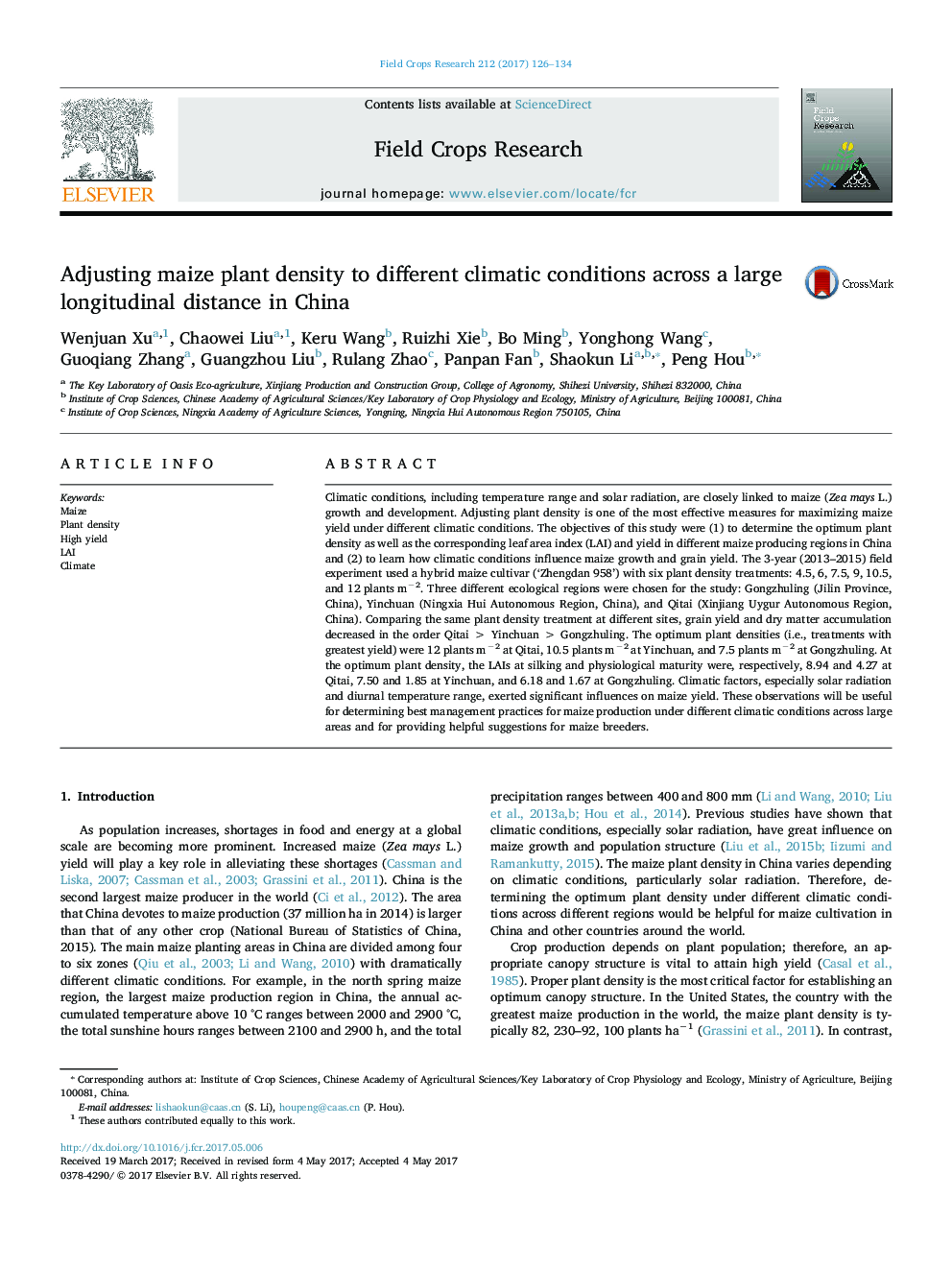| Article ID | Journal | Published Year | Pages | File Type |
|---|---|---|---|---|
| 5761353 | Field Crops Research | 2017 | 9 Pages |
Abstract
Climatic conditions, including temperature range and solar radiation, are closely linked to maize (Zea mays L.) growth and development. Adjusting plant density is one of the most effective measures for maximizing maize yield under different climatic conditions. The objectives of this study were (1) to determine the optimum plant density as well as the corresponding leaf area index (LAI) and yield in different maize producing regions in China and (2) to learn how climatic conditions influence maize growth and grain yield. The 3-year (2013-2015) field experiment used a hybrid maize cultivar ('Zhengdan 958') with six plant density treatments: 4.5, 6, 7.5, 9, 10.5, and 12 plants mâ2. Three different ecological regions were chosen for the study: Gongzhuling (Jilin Province, China), Yinchuan (Ningxia Hui Autonomous Region, China), and Qitai (Xinjiang Uygur Autonomous Region, China). Comparing the same plant density treatment at different sites, grain yield and dry matter accumulation decreased in the order Qitai > Yinchuan > Gongzhuling. The optimum plant densities (i.e., treatments with greatest yield) were 12 plants mâ2 at Qitai, 10.5 plants mâ2 at Yinchuan, and 7.5 plants mâ2 at Gongzhuling. At the optimum plant density, the LAIs at silking and physiological maturity were, respectively, 8.94 and 4.27 at Qitai, 7.50 and 1.85 at Yinchuan, and 6.18 and 1.67 at Gongzhuling. Climatic factors, especially solar radiation and diurnal temperature range, exerted significant influences on maize yield. These observations will be useful for determining best management practices for maize production under different climatic conditions across large areas and for providing helpful suggestions for maize breeders.
Related Topics
Life Sciences
Agricultural and Biological Sciences
Agronomy and Crop Science
Authors
Wenjuan Xu, Chaowei Liu, Keru Wang, Ruizhi Xie, Bo Ming, Yonghong Wang, Guoqiang Zhang, Guangzhou Liu, Rulang Zhao, Panpan Fan, Shaokun Li, Peng Hou,
